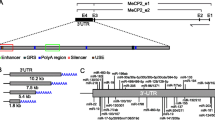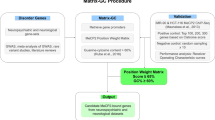Abstract
Methyl-CpG-binding protein 2 (MeCP2) is a classic methylated-DNA-binding protein, dysfunctions of which lead to various neurodevelopmental disorders such as Rett syndrome and autism spectrum disorder. Initially recognized as a transcriptional repressor, MeCP2 has been studied extensively and its functions have been expanded dramatically in the past two decades. Recently, it was found to be involved in gene regulation at the post-transcriptional level. MeCP2 represses nuclear microRNA processing by interacting directly with the Drosha/DGCR8 complex. In addition to its multifaceted functions, MeCP2 is remarkably modulated by posttranslational modifications such as phosphorylation, SUMOylation, and acetylation, providing more regulatory dimensions to its functions. The role of MeCP2 in the central nervous system has been studied extensively, from neurons to glia. Future investigations combining molecular, cellular, and physiological methods are necessary for defining the roles of MeCP2 in the brain and developing efficient treatments for MeCP2-related brain disorders.
Similar content being viewed by others
References
Lewis JD, Meehan RR, Henzel WJ, Maurerfogy I, Jeppesen P, Klein F, et al. Purification, sequence, and cellular-localization of a novel chromosomal protein that binds to methylated DNA. Cell 1992, 69: 905–914.
Ruizopazo N, Zannis VI. Expression of the Human Apolipoprotein-a-I gene in rat myogenic L6e9 cells — DNA methylation and regulation of gene activity. J Biol Chem 1988, 263: 1739–1744.
Cedar H. DNA methylation and gene activity. Cell 1988, 53: 3–4.
Nan X, Meehan RR, Bird A. Dissection of the methyl-CpG binding domain from the chromosomal protein MeCP2. Nucleic Acids Res 1993, 21: 4886–4892.
Nan XS, Campoy FJ, Bird A. MeCP2 is a transcriptional repressor with abundant binding sites in genomic chromatin. Cell 1997, 88: 471–481.
Nan X, Ng HH, Johnson CA, Laherty CD, Turner BM, Eisenman RN, et al. Transcriptional repression by the methyl-CpG-binding protein MeCP2 involves a histone deacetylase complex. Nature 1998, 393: 386–389.
Zoghbi HY, Amir RE, Wan M, Lee SS, Van den Veyver IB, Tran CQ, et al. Rett syndrome is caused by mutations in the X-linked MECP2 gene encoding methyl-CpG-binding protein. Am J Hum Genet 2000, 66: 1723–1723.
Chahrour M, Zoghbi HY. The story of Rett syndrome: from clinic to neurobiology. Neuron 2007, 56: 422–437.
Shahbazian MD, Antalffy B, Armstrong DL, Zoghbi HY. Insight into Rett syndrome: MeCP2 levels display tissue- and cellspecific differences and correlate with neuronal maturation. Hum Mol Genet 2002, 11: 115–124.
Kriaucionis S, Bird A. The major form of MeCP2 has a novel N-terminus generated by alternative splicing. Nucleic Acids Res 2004, 32: 1818–1823.
Mnatzakanian GN, Lohi H, Munteanu I, Alfred SE, Yamada T, MacLeod PJ, et al. A previously unidentified MECP2 open reading frame defines a new protein isoform relevant to Rett syndrome. Nat Genet 2004, 36: 339–341.
Dragich JM, Kim YH, Arnold AP, Schanen NC. Differential distribution of the MeCP2 splice variants in the postnatal mouse brain. J Comp Neurol 2007, 501: 526–542.
Olson CO, Zachariah RM, Ezeonwuka CD, Liyanage VR, Rastegar M. Brain region-specific expression of MeCP2 isoforms correlates with DNA methylation within Mecp2 regulatory elements. PLoS One 2014, 9: e90645.
Zachariah RM, Olson CO, Ezeonwuka C, Rastegar M. Novel MeCP2 isoform-specific antibody reveals the endogenous MeCP2E1 expression in murine brain, primary neurons and astrocytes. PLoS One 2012, 7: e49763.
Dastidar SG, Bardai FH, Ma C, Price V, Rawat V, Verma P, et al. Isoform-specific toxicity of Mecp2 in postmitotic neurons: suppression of neurotoxicity by FoxG1. J Neurosci 2012, 32: 2846–2855.
Itoh M, Tahimic CG, Ide S, Otsuki A, Sasaoka T, Noguchi S, et al. Methyl CpG-binding protein isoform MeCP2 xe2 is dispensable for Rett syndrome phenotypes but essential for embryo viability and placenta development. J Biol Chem 2012, 287: 13859–13867.
Liyanage VR, Zachariah RM, Rastegar M. Decitabine alters the expression of Mecp2 isoforms via dynamic DNA methylation at the Mecp2 regulatory elements in neural stem cells. Mol Autism 2013, 4: 46.
Ramocki MB, Peters SU, Tavyev YJ, Zhang F, Carvalho CM, Schaaf CP, et al. Autism and other neuropsychiatric symptoms are prevalent in individuals with MeCP2 duplication syndrome. Ann Neurol 2009, 66: 771–782.
Guy J, Hendrich B, Holmes M, Martin JE, Bird A. A mouse Mecp2-null mutation causes neurological symptoms that mimic Rett syndrome. Nat Genet 2001, 27: 322–326.
Chen RZ, Akbarian S, Tudor M, Jaenisch R. Deficiency of methyl-CpG binding protein-2 in CNS neurons results in a Rett-like phenotype in mice. Nat Genet 2001, 27: 327–331.
Collins AL, Levenson JM, Vilaythong AP, Richman R, Armstrong DL, Noebels JL, et al. Mild overexpression of MeCP2 causes a progressive neurological disorder in mice. Hum Mol Genet 2004, 13: 2679–2689.
Liu H, Chen Y, Niu Y, Zhang K, Kang Y, Ge W, et al. TALEN-mediated gene mutagenesis in rhesus and cynomolgus monkeys. Cell Stem Cell 2014, 14: 323–328.
Liu Z, Zhou X, Zhu Y, Chen ZF, Yu B, Wang Y, et al. Generation of a monkey with MECP2 mutations by TALEN-based gene targeting. Neurosci Bull 2014, 30: 381–386.
Chao HT, Zoghbi HY, Rosenmund C. MeCP2 controls excitatory synaptic strength by regulating glutamatergic synapse number. Neuron 2007, 56: 58–65.
Chen WG, Chang Q, Lin Y, Meissner A, West AE, Griffith EC, et al. Derepression of BDNF transcription involves calciumdependent phosphorylation of MeCP2. Science 2003, 302: 885–889.
Martinowich K, Hattori D, Wu H, Fouse S, He F, Hu Y, et al. DNA methylation-related chromatin remodeling in activitydependent BDNF gene regulation. Science 2003, 302: 890–893.
Qiu Z, Sylwestrak EL, Lieberman DN, Zhang Y, Liu XY, Ghosh A. The Rett syndrome protein MeCP2 regulates synaptic scaling. J Neurosci 2012, 32: 989–994.
Chahrour M, Jung SY, Shaw C, Zhou XB, Wong STC, Qin J, et al. MeCP2, a key contributor to neurological disease, activates and represses transcription. Science 2008, 320: 1224–1229.
Ben-Shachar S, Chahrour M, Thaller C, Shaw CA, Zoghbi HY. Mouse models of MeCP2 disorders share gene expression changes in the cerebellum and hypothalamus. Hum Mol Genet 2009, 18: 2431–2442.
Ebert DH, Gabel HW, Robinson ND, Kastan NR, Hu LS, Cohen S, et al. Activity-dependent phosphorylation of MeCP2 threonine 308 regulates interaction with NCoR. Nature 2013, 499: 341–345.
Lyst MJ, Ekiert R, Ebert DH, Merusi C, Nowak J, Selfridge J, et al. Rettsyndrome mutations abolish the interaction of MeCP2 with the NCoR/SMRT co-repressor. Nat Neurosci 2013, 16: 898–902.
Yasui DH, Xu H, Dunaway KW, Lasalle JM, Jin LW, Maezawa I. MeCP2 modulates gene expression pathways in astrocytes. Mol Autism 2013, 4: 3.
Klein ME, Lioy DT, Ma L, Impey S, Mandel G, Goodman RH. Homeostatic regulation of MeCP2 expression by a CREB-induced microRNA. Nat Neurosci 2007, 10: 1513–1514.
Li W, Pozzo-Miller L. BD NF deregulation in Rett syndrome. Neuropharmacology 2014, 76 Pt C: 737–746.
Kapranov P, Cheng J, Dike S, Nix DA, Duttagupta R, Willingham AT, et al. RNA maps reveal new RNA classes and a possible function for pervasive transcription. Science 2007, 316: 1484–1488.
Kosik KS. The neuronal microRNA system. Nat Rev Neurosci 2006, 7: 911–920.
Qureshi IA, Mehler MF. Emer ging roles of non-coding RNAs in brain evolution, development, plasticity and disease. Nat Revi Neurosci 2012, 13: 528–541.
Krichevsky AM, Sonntag KC, Isacson O, Kosik KS. Specific microRNAs modulate embryonic stem cell-derived neurogenesis. Stem Cells 2006, 24: 857–864.
Schratt GM, Tuebing F, Nigh EA, Kane CG, Sabatini ME, Kiebler M, et al. A brain-specific microRNA regulates dendritic spine development. Nature 2006, 439: 283–289.
Ng SY, Johnson R, Stanton LW. Human long non-coding RNAs promote pluripotency and neuronal differentiation by association with chromatin modifiers and transcription factors. EMBO J 2012, 31: 522–533.
Ulitsky I, Bartel DP. lincRNAs: Genomics, Evolution, and Mechanisms. Cell 2013, 154: 26–46.
Ng SY, Bogu GK, Soh BS, Stanton LW. The long noncoding RNA RMST interacts with SOX2 to regulate neurogenesis. Mol Cell 2013, 51: 349–359.
Urdinguio RG, Fernandez AF, Lopez-Nieva P, Rossi S, Huertas D, Kulis M, et al. Disrupted microRNA expression caused by Mecp2 loss in a mouse model of Rett syndrome. Epigenetics 2010, 5: 656–663.
Wu H, Tao JF, Chen PJ, Shahab A, Ge WH, Hart RP, et al. Genome-wide analysis reveals methyl-CpG-binding protein 2-dependent regulation of microRNAs in a mouse model of Rett syndrome. Proc Natl Acad Sci U S A 2010, 107: 18161–18166.
Petazzi P, Sandoval J, Szczesna K, Jorge OC, Roa L, Sayols S, et al. Dysregulation of the long non-coding RNA transcriptome in a Rett syndrome mouse model. RNA Biol 2013, 10: 1197–1203.
Szulwach KE, Li XK, Smrt RD, Li YJ, Luo YP, Lin L, et al. Cross talk between microRNA and epigenetic regulation in adult neurogenesis. J Cell Biol 2010, 189: 127–U181.
Cheng T-L, Wang Z, Liao Q, Zhu Y, Zhou W-H, Xu W, et al. MeCP2 suppresses nuclear microRNA processing and dendritic growth by regulating the DGCR8/Drosha complex. Dev Cell 2014, 28: 547–560.
Young JI, Hong EP, Castle JC, Crespo-Barreto J, Bowman AB, Rose MF, et al. Regulation of RNA splicing by the methylation-dependent transcriptional repressor methyl-CpG binding protein 2. Proc Natl Acad Sci U S A 2005, 102: 17551–17558.
Maunakea AK, Chepelev I, Cui K, Zhao K. Intragenic DNA methylation modulates alternative splicing by recruiting MeCP2 to promote exon recognition. Cell Res 2013, 23: 1256–1269.
Maxwell SS, Pelka GJ, Tam PP, El-Osta A. Chromatin context and ncRNA highlight targets of MeCP2 in brain. RNA Biol 2013, 10: 1741–1757.
Ricciardi S, Boggio EM, Grosso S, Lonetti G, Forlani G, Stefanelli G, et al. Reduced AKT/mTOR signaling and protein synthesis dysregulation in a Rett syndrome animal model. Hum Mol Genet 2011, 20: 1182–1196.
Beltrao P, Albanese V, Kenner LR, Swaney DL, Burlingame A, Villen J, et al. Systematic functional prioritization of protein posttranslational modifications. Cell 2012, 150: 413–425.
Tao JF, Hu KP, Chang Q, Wu H, Sherman NE, Martinowich K, et al. Phosphorylation of MeCP2 at Serine 80 regulates its chromatin association and neurological function. Proc Natl Acad Sci U S A 2009, 106: 4882–4887.
Zhou Z, Hong EJ, Cohen S, Zhao WN, Ho HY, Schmidt L, et al. Brain-specific phosphorylation of MeCP2 regulates activity-dependent Bdnf transcription, dendritic growth, and spine maturation. Neuron 2006, 52: 255–269.
Li HD, Zhong XF, Chau KF, Williams EC, Chang Q. Loss of activity-induced phosphorylation of MeCP2 enhances synaptogenesis, LTP and spatial memory. Nat Neurosci 2011, 14: 1001–U1089.
Cohen S, Gabel HW, Hemberg M, Hutchinson AN, Sadacca LA, Ebert DH, et al. Genome-wide activity-dependent MeCP2 phosphorylation regulates nervous system development and function. Neuron 2011, 72: 72–85.
Zocchi L, Sassone-Corsi P. SIRT1-mediated deace tylation of MeCP2 contributes to BDNF expression. Epigenetics 2012, 7: 695–700.
Cheng J, Huang M, Zhu Y, Xin YJ, Zhao YK, Huang J, et al. SUMOylation of MeCP2 is essential for transcriptional repression and hippocampal synapse development. J Neurochem 2014, 128: 798–806.
Asaka Y, Jugloff DG, Zhang L, Eubanks JH, Fitzsimonds RM. Hippocampal synaptic plasticity is impaired in the Mecp2-null mouse model of Rett syndrome. Neurobiol Dis 2006, 21: 217–227.
Samaco RC, Mandel-Brehm C, Chao HT, Ward CS, Fyffe-Maricich SL, Ren J, et al. Loss of MeCP2 in aminergic neurons causes cell-autonomous defects in neurotransmitter synthesis and specific behavioral abnormalities. Proc Natl Acad Sci U S A 2009, 106: 21966–21971.
Chao HT, Chen HM, Samaco RC, Xue MS, Chahrour M, Yoo J, et al. Dysfunction in GABA signalling mediates autism-like stereotypies and Rett syndrome phenotypes. Nature 2010, 468: 263–269.
Ballas N, Lioy DT, Grunseich C, Mandel G. Non-cell a utonomous influence of MeCP2-deficient glia on neuronal dendritic morphology. Nat Neurosci 2009, 12: 311–317.
Maezawa I, Swanberg S, Harvey D, LaSalle JM, Jin LW. Rett syndrome astrocytes are abnormal and spread MeCP2 deficiency through gap junctions. J Neurosci 2009, 29: 5051–5061.
Nguyen MV, Felice CA, Du F, Covey MV, Robinson JK, Mandel G, et al. Oligodendrocyte lineage cells contribute unique features to Rett syndrome neuropathology. J Neurosci 2013, 33: 18764–18774.
Derecki NC, Cronk JC, Lu Z, Xu E, Abbott SB, Guyenet PG, et al. Wild-type microglia arrest pathology in a mouse model of Rett syndrome. Nature 2012, 484: 105–109.
Author information
Authors and Affiliations
Corresponding author
Rights and permissions
About this article
Cite this article
Cheng, TL., Qiu, Z. MeCP2: multifaceted roles in gene regulation and neural development. Neurosci. Bull. 30, 601–609 (2014). https://doi.org/10.1007/s12264-014-1452-6
Received:
Accepted:
Published:
Issue Date:
DOI: https://doi.org/10.1007/s12264-014-1452-6




